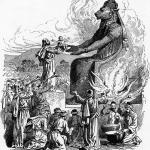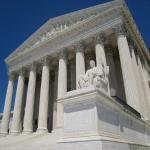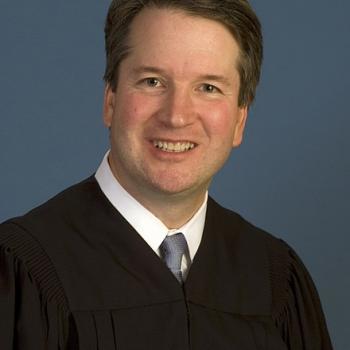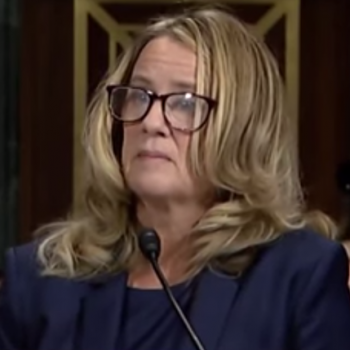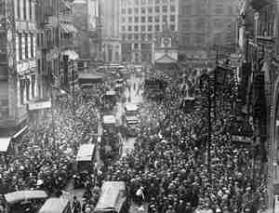The result of the Masterpiece Cakeshop, Ltd., v. Colorado Civil Rights Commission [1] has invoked claims of victory from both sides. But the case was so specific in its facts, and narrow in its ruling, that it is not altogether certain how subsequent cases will be impacted. It behooves us, therefore, to take a look at the Supreme Court’s opinion and decide what has been gained or lost.
For those not familiar with the factual background,
“Masterpiece Cakeshop, Ltd., is a bakery in Lakewood, Colorado, a suburb of Denver. The shop offers a variety of baked goods, ranging from everyday cookies and brownies to elaborate custom-designed cakes for birthday parties, weddings, and other events.
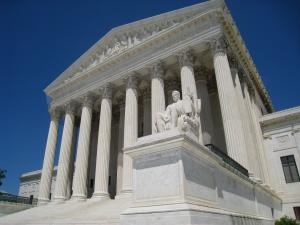 “Jack Phillips is an expert baker who has owned and operated the shop for 24 years. Phillips is a devout Christian. He has explained that his ‘main goal in life is to be obedient to’ Jesus Christ and Christ’s ‘teachings in all aspects of his life.’ And he seeks to ‘honor God through his work at Masterpiece Cakeshop.’ One of Phillips’ religious beliefs is that ‘God’s intention for marriage from the beginning of history is that it is and should be the union of one man and one woman.’ To Phillips, creating a wedding cake for a same-sex wedding would be equivalent to participating in a celebration that is contrary to his own most deeply held beliefs.
“Jack Phillips is an expert baker who has owned and operated the shop for 24 years. Phillips is a devout Christian. He has explained that his ‘main goal in life is to be obedient to’ Jesus Christ and Christ’s ‘teachings in all aspects of his life.’ And he seeks to ‘honor God through his work at Masterpiece Cakeshop.’ One of Phillips’ religious beliefs is that ‘God’s intention for marriage from the beginning of history is that it is and should be the union of one man and one woman.’ To Phillips, creating a wedding cake for a same-sex wedding would be equivalent to participating in a celebration that is contrary to his own most deeply held beliefs.
“Phillips met Charlie Craig and Dave Mullins when they entered his shop in the summer of 2012. Craig and Mullins were planning to marry. At that time, Colorado did not recognize same-sex marriages, so the couple planned to wed legally in Massachusetts and afterwards to host a reception for their family and friends in Denver. To prepare for their celebration, Craig and Mullins visited the shop and told Phillips that they were interested in ordering a cake for ‘our wedding.’ They did not mention the design of the cake they envisioned.
“Phillips informed the couple that he does not ‘create’ wedding cakes for same-sex weddings. He explained, ‘I’ll make your birthday cakes, shower cakes, sell you cookies and brownies, I just don’t make cakes for same sex weddings.’ The couple left the shop without further discussion.
“The following day, Craig’s mother, who had accompanied the couple to the cakeshop and been present for their interaction with Phillips, telephoned to ask Phillips why he had declined to serve her son. Phillips explained that he does not create wedding cakes for same-sex weddings because of his religious opposition to same-sex marriage, and also because Colorado (at that time) did not recognize same-sex marriages. He later explained his belief that ‘to create a wedding cake for an event that celebrates something that directly goes against the teachings of the Bible, would have been a personal endorsement and participation in the ceremony and relationship that they were entering into.’” (Opinion, pp. 3-4, citations omitted.)
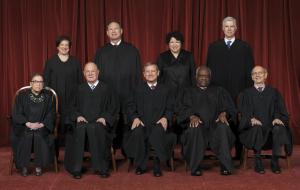 Although Colorado did not recognize same-sex marriages at the time, the Colorado Anti-Discrimination Act (CADA) made it then, and makes it now, “’a discriminatory practice and unlawful for a person, directly or indirectly, to refuse, withhold from, or deny to an individual or a group, because of disability, race, creed, color, sex, sexual orientation, marital status, national origin, or ancestry, the full and equal enjoyment of the goods, services, facilities, privileges, advantages, or accommodations of a place of public accommodation.’” (Opinion, p. 5) “The Act defines ‘public accommodation’ broadly to include any ‘place of business engaged in any sales to the public and any place offering services . . . to the public,’ but excludes ‘a church, synagogue, mosque, or other place that is principally used for religious purposes.’” (Ibid.)
Although Colorado did not recognize same-sex marriages at the time, the Colorado Anti-Discrimination Act (CADA) made it then, and makes it now, “’a discriminatory practice and unlawful for a person, directly or indirectly, to refuse, withhold from, or deny to an individual or a group, because of disability, race, creed, color, sex, sexual orientation, marital status, national origin, or ancestry, the full and equal enjoyment of the goods, services, facilities, privileges, advantages, or accommodations of a place of public accommodation.’” (Opinion, p. 5) “The Act defines ‘public accommodation’ broadly to include any ‘place of business engaged in any sales to the public and any place offering services . . . to the public,’ but excludes ‘a church, synagogue, mosque, or other place that is principally used for religious purposes.’” (Ibid.)
To follow what took place in this case, a description of Colorado procedure in such matters is in order:
“CADA establishes an administrative system for the resolution of discrimination claims. Complaints of discrimination in violation of CADA are addressed in the first instance by the Colorado Civil Rights Division. The Division investigates each claim; and if it finds probable cause that CADA has been violated, it will refer the matter to the Colorado Civil Rights Commission. The Commission, in turn, decides whether to initiate a formal hearing before a state Administrative Law Judge (ALJ), who will hear evidence and argument before issuing a written decision. The decision of the ALJ may be appealed to the full Commission, a seven-member appointed body. The Commission holds a public hearing and deliberative session before voting on the case. If the Commission determines that the evidence proves a CADA violation, it may impose remedial measures as provided by statute. Available remedies include, among other things, orders to cease-and-desist a discriminatory policy, to file regular compliance reports with the Commission, and ‘to take affirmative action, including the posting of notices setting forth the substantive rights of the public.’ Colorado law does not permit the Commission to assess money damages or fines.” (Opinion, p. 6, citations omitted.)
“Craig and Mullins filed a discrimination complaint,” alleging that they “had been denied ‘full and equal service’ at the bakery because of their sexual orientation, and that it was Phillips’ ‘standard business practice’ not to provide cakes for same-sex weddings.” (Ibid, citations omitted.) An investigation was opened, which “found that ‘on multiple occasions,’ Phillips ‘turned away potential customers on the basis of their sexual orientation, stating that he could not create a cake for a same-sex wedding ceremony or reception’ because his religious beliefs prohibited it and because the potential customers ‘were doing something illegal’ at that time.” (Ibid, citations omitted)
The case was referred to an ALJ, before whom Phillips raised two constitutional claims. “He first asserted that applying CADA in a way that would require him to create a cake for a same-sex wedding would violate his First Amendment right to free speech by compelling him to exercise his artistic talents to express a message with which he disagreed.” (Id, p. 7) He “also contended that requiring him to create cakes for same-sex weddings would violate his right to the free exercise of religion, also protected by the First Amendment.” (Id, pp. 7-8)
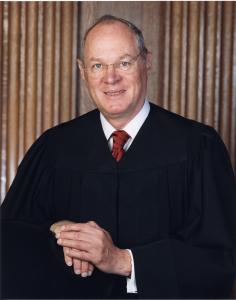 Both constitutional claims were rejected. “The ALJ rejected the contention that preparing a wedding cake is a form of protected speech and did not agree that creating Craig and Mullins’ cake would force Phillips to adhere to ‘an ideological point of view.’” (Id, p. 7) The ALJ further “determined that CADA is a ‘valid and neutral law of general applicability’ and therefore that applying it to Phillips in this case did not violate the Free Exercise Clause. The ALJ thus ruled against Phillips and the cakeshop and in favor of Craig and Mullins on both constitutional claims.” (Id., p. 8)
Both constitutional claims were rejected. “The ALJ rejected the contention that preparing a wedding cake is a form of protected speech and did not agree that creating Craig and Mullins’ cake would force Phillips to adhere to ‘an ideological point of view.’” (Id, p. 7) The ALJ further “determined that CADA is a ‘valid and neutral law of general applicability’ and therefore that applying it to Phillips in this case did not violate the Free Exercise Clause. The ALJ thus ruled against Phillips and the cakeshop and in favor of Craig and Mullins on both constitutional claims.” (Id., p. 8)
Phillips appealed to the full Commission, which “convened publicly to consider Phillips’ case. At several points during its meeting, commissioners endorsed the view that religious beliefs cannot legitimately be carried into the public sphere or commercial domain, implying that religious beliefs and persons are less than fully welcome in Colorado’s business community. One commissioner suggested that Phillips can believe ‘what he wants to believe,’ but cannot act on his religious beliefs ‘if he decides to do business in the state.’ A few moments later, the commissioner restated the same position: ‘[I]f a businessman wants to do business in the state and he’s got an issue with the—the law’s impacting his personal belief system, he needs to look at being able to compromise.” (Id, pp. 12-13, citations omitted.)
Nearly two months later, the full Commission met again on the Phillips case. “This meeting, too, was conducted in public and on the record. On this occasion another commissioner made specific reference to the previous meeting’s discussion but said far more to disparage Phillips’ beliefs. The commissioner stated:
“’I would also like to reiterate what we said in the hearing or the last meeting. Freedom of religion and religion has been used to justify all kinds of discrimination throughout history, whether it be slavery, whether it be the holocaust, whether it be—I mean, we—we can list hundreds of situations where freedom of religion has been used to justify discrimination. And to me it is one of the most despicable pieces of rhetoric that people can use to—to use their religion to hurt others.’” (Id, p. 13.) “The record shows no objection to these comments from other commissioners.” (Id, p. 14.)
 Needless to say, the Commission ruled against Phillips, and in favor of Craig and Mullins. Interestingly, at “the time, state law also afforded storekeepers some latitude to decline to create specific messages the storekeeper considered offensive. Indeed, while enforcement proceedings against Phillips were ongoing, the Colorado Civil Rights Division itself endorsed this proposition in cases involving other bakers’ creation of cakes, concluding on at least three occasions that a baker acted lawfully in declining to create cakes with decorations that demeaned gay persons or gay marriages.” (Id, pp. 11-12.)
Needless to say, the Commission ruled against Phillips, and in favor of Craig and Mullins. Interestingly, at “the time, state law also afforded storekeepers some latitude to decline to create specific messages the storekeeper considered offensive. Indeed, while enforcement proceedings against Phillips were ongoing, the Colorado Civil Rights Division itself endorsed this proposition in cases involving other bakers’ creation of cakes, concluding on at least three occasions that a baker acted lawfully in declining to create cakes with decorations that demeaned gay persons or gay marriages.” (Id, pp. 11-12.)
It “made these determinations because, in the words of the Division, the requested cake included ‘wording and images [the baker] deemed derogatory,’ featured ‘language and images [the baker] deemed hateful,’ or displayed a message the baker ‘deemed as discriminatory.” (Id, pp. 14-15.) “Additionally, the Division found no violation of CADA in the other cases in part because each bakery was willing to sell other products, including those depicting Christian themes, to the prospective customers.” (Id, p. 15.)
By contrast, the “Commission ruled against Phillips in part on the theory that any message the requested wedding cake would carry would be attributed to the customer, not to the baker. Yet the Division did not address this point in any of the other cases with respect to the cakes depicting anti-gay marriage symbolism.” (Ibid.) Moreover, “the Commission dismissed Phillips’ willingness to sell ‘birthday cakes, shower cakes, [and] cookies and brownies’ to gay and lesbian customers as irrelevant.” (Ibid, citations omitted.)
“Before the Colorado Court of Appeals, Phillips protested that this disparity in treatment reflected hostility on the part of the Commission toward his beliefs. He argued that the Commission had treated the other bakers’ conscience-based objections as legitimate, but treated his as illegitimate—thus sitting in judgment of his religious beliefs themselves. The Court of Appeals addressed the disparity only in passing and relegated its complete analysis of the issue to a footnote. There, the court stated that ‘[t]his case is distinguishable from the Colorado Civil Rights Division’s recent findings that [the other bakeries] in Denver did not discriminate against a Christian patron on the basis of his creed’ when they refused to create the requested cakes. In those cases, the court continued, there was no impermissible discrimination because ‘the Division found that the bakeries…refuse[d] the patron’s request…because of the offensive nature of the requested message.” (Id, 15-16, citations omitted.)
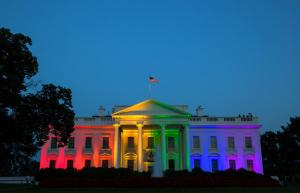 The U.S. Supreme Court found that reasoning unpersuasive, saying that a “principled rationale for the difference in treatment of these two instances cannot be based on the government’s own assessment of offensiveness. Just as ‘no official, high or petty, can prescribe what shall be orthodox in politics, nationalism, religion, or other matters of opinion,’ it is not, as the Court has repeatedly held, the role of the State or its officials to prescribe what shall be offensive. The Colorado court’s attempt to account for the difference in treatment elevates one view of what is offensive over another and itself sends a signal of official disapproval of Phillips’ religious beliefs.” (Id, p. 16, citations omitted.) The Supreme Court, therefore, found that the Colorado court’s footnote did not “answer the baker’s concern that the State’s practice was to disfavor the religious basis of his objection.” (Ibid.)
The U.S. Supreme Court found that reasoning unpersuasive, saying that a “principled rationale for the difference in treatment of these two instances cannot be based on the government’s own assessment of offensiveness. Just as ‘no official, high or petty, can prescribe what shall be orthodox in politics, nationalism, religion, or other matters of opinion,’ it is not, as the Court has repeatedly held, the role of the State or its officials to prescribe what shall be offensive. The Colorado court’s attempt to account for the difference in treatment elevates one view of what is offensive over another and itself sends a signal of official disapproval of Phillips’ religious beliefs.” (Id, p. 16, citations omitted.) The Supreme Court, therefore, found that the Colorado court’s footnote did not “answer the baker’s concern that the State’s practice was to disfavor the religious basis of his objection.” (Ibid.)
The Supreme Court also found that “the Commission’s treatment of Phillips’ case violated the State’s duty under the First Amendment not to base laws or regulations on hostility to a religion or religious viewpoint.” (Ibid.) The Court said, citing precedent, that “the government, if it is to respect the Constitution’s guarantee of free exercise, cannot impose regulations that are hostile to the religious beliefs of affected citizens and cannot act in a manner that passes judgment upon or presupposes the illegitimacy of religious beliefs and practices. The Free Exercise Clause bars even ‘subtle departures from neutrality’ on matters of religion. Here, that means the Commission was obliged under the Free Exercise Clause to proceed in a manner neutral toward and tolerant of Phillips’ religious beliefs. The Constitution ‘commits government itself to religious tolerance, and upon even slight suspicion that proposals for state intervention stem from animosity to religion or distrust of its practices, all officials must pause to remember their own high duty to the Constitution and to the rights it secures.’” (Id, pp. 16-17, citations omitted.) And the Commission’s hostility to Phillips’s religious beliefs were evident both because of the inconsistent way it handled his case compared to other cases, and the statements of individual commissioners during the hearing.
Those were the grounds for the Supreme Court’s ruling in favor of Phillips. It did not rule on either of his First Amendment claims: that requiring “him to create a cake for a same-sex wedding would violate his First Amendment right to free speech by compelling him to exercise his artistic talents to express a message with which he disagreed,” (Id, p. 7) or “that requiring him to create cakes for same-sex weddings would violate his right to the free exercise of religion, also protected by the First Amendment.” (Id, pp. 7-8) The answer to those questions will have to await another case.
I intend to deal with both of those questions in subsequent posts. But before we can understand how to respond to Masterpiece Cakeshop, Ltd., v. Colorado Civil Rights Commission, we have to first understand what the case was about, and what the Supreme Court’s ruling actually entailed. I hope that I have aided that effort by the foregoing.
The icon of St. Joseph the Worker is by Daniel Nichols.
Please go like Christian Democracy on Facebook here. Join the discussion on Catholic social teaching here.

